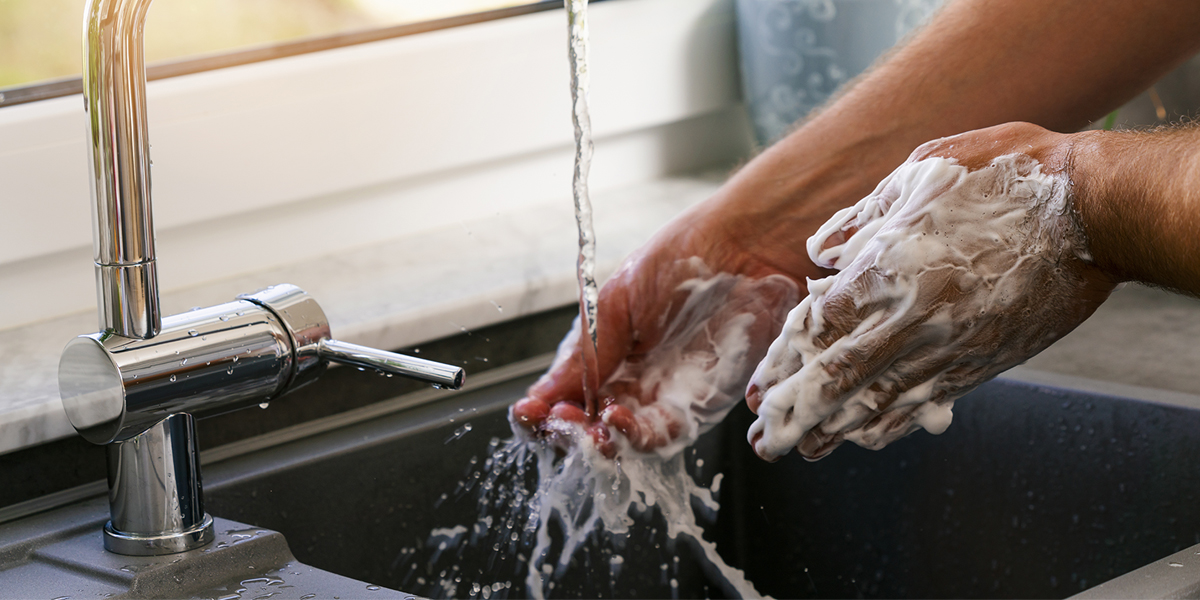About one in three Canadians will get shingles. But timely treatment can lessen symptoms, and a vaccine can help prevent it.
Coronavirus (COVID-19) pandemic: Your questions answered
It's more serious than the common flu and it's now reached a pandemic-level status. But what does that mean? And how can you protect yourself? Here's a quick explainer.

Please note: This article is accurate at the time of publication (stated above). But with the situation around coronavirus changing frequently, you may not see the most up-to-date information in the text below. To receive the latest updates around COVID-19, please visit the World Health Organization’s (WHO) website and the Government of Canada’s COVID-19 page.
Coronavirus or COVID-19 pandemic. You’ve heard about it everywhere. But what does it actually mean? And is it really as alarming as it sounds?
Here’s a breakdown of what it all means – and what you can do to help protect yourself.
What is coronavirus or COVID-19?
Coronaviruses are a large family of viruses. These viruses can cause various illnesses for people of all ages, ranging from the common cold to more severe diseases.
The most recently discovered coronavirus is COVID-19, which originally began in Wuhan, China in December 2019. To this day, health officials have reported thousands of infections across the world.
So what happens if the virus continues to spread globally? Then there’s a pandemic.
What’s a pandemic?
The World Health Organization (WHO) defines “pandemic” as the worldwide spread of a new disease. To be labelled a pandemic, a disease must be infectious and affect a large number of people who don’t have immunity to it.
The word pandemic may spark fear or concern. But keep in mind, “pandemic” only refers to the spread of a disease. It doesn’t refer to its fatality or death rate.
What’s the difference between a pandemic and an epidemic?
Pandemic or epidemic. You’ve probably heard both words being tossed around in the news. But they don’t mean the same thing.
An epidemic refers to an outbreak or an increase in the number of cases of a disease – in this case, COVID-19 – in a specific area. But a pandemic refers to an epidemic that’s spread over several countries or continents.
With that in mind, you could say COVID-19 started as a number of epidemics that affected certain regions before becoming a pandemic.
Is there officially a coronavirus or COVID-19 pandemic?
Yes, the WHO officially declared that COVID-19 has reached pandemic level status.
Who is WHO? The World Health Organization (WHO) is a United Nations agency. Their job is to direct and coordinate international health within the United Nations system.
How do you protect yourself during a pandemic?
Don’t go into a pandemic panic.
COVID-19 is more serious than the common flu and that makes it more concerning. But it’s important to try to remain calm, prepared and alert. You can start by turning to trusted sources for accurate information and advice. This includes:
- the World Health Organization,
- the Public Health Agency of Canada,
- the Government of Canada and
- your doctor.
When it comes to protecting yourself, the WHO recommends practicing good hygiene by:
- washing your hands regularly,
- distancing yourself from others,
- covering your mouth and nose with your bent elbow or tissue when coughing or sneezing,
- avoid touching your eyes, nose and mouth,
- staying at home and limiting non-essential gatherings, and
- getting medical attention if you have a fever, cough or difficulty breathing.*
(*Please note that if you’re experiencing these symptoms, you must contact and inform your doctor or public health authority ahead of time. They can tell you what you need to do next.)
What do you do if there’s a coronavirus outbreak in your community?
Along with following the WHO’s recommendations, the Government of Canada also suggests making a plan to protect yourself and your loved ones. This plan may include these four tips:
1. Avoid crowded places and mass gatherings
Respiratory illnesses like COVID-19 spread quickly in crowded spaces. Avoiding crowds can reduce the spread of infection and lower your risk of infection as well. That’s why you’ll want to avoid mass gatherings like parties and events. The Public Health Agency of Canada recommends that organizers cancel or postpone gatherings of 50 people or more.
2. Practice social distancing
Social distancing is one of the best ways to reduce the spread of illness during a pandemic. It means making changes in the way you interact with others. This includes:
- avoiding crowded places and non-essential gatherings,
- avoiding common greetings, such as handshakes,
- limiting contact with people at higher risk like older adults and those in poor health, and
- keeping a distance of at least 2 arms-length (approximately 2 metres) from others.
3. Buy groceries and essentials, but don’t panic buy
Fill your cupboards with non-perishable food items. This way, you won’t have to go shopping if you become sick. But remember there’s no need to panic and over-buy items. All you have to do is add a few extra items to your grocery cart every time you shop.
For example, it may help to have dried pasta and sauce as well as prepared canned goods on hand. You might also want to get additional pet food, diapers (if you have a baby) and hygiene products.
Having these items on hand means you won’t have to leave your home at the peak of an outbreak or if you become ill.
4. Fill your prescriptions
It’s best to refill your prescriptions now so that you can avoid a busy lineup at the pharmacy if you become sick.
Call your doctor or health-care provider and ask about whether you can renew your prescriptions ahead of time.
What do you do if you or a family member becomes sick with COVID-19?
The government recommends preparing for such a situation by having the following items in your home:
- soap,
- facial tissue,
- alcohol-based hand sanitizer,
- paper towels,
- household cleaning products,
- regular detergents for washing dishes and doing laundry,
- fever-reducing medications (call your doctor for more info),
- medications and products for children (if you’re a parent or caregiver, call your doctor for more info),
- plastic garbage bags for containing soiled tissues and other waste, and
- household bleach for creating a solution of one part bleach to nine parts water to disinfect surfaces.
But it’s most important to seek medical attention during this time. So if you or a loved one is feeling sick or experiencing symptoms of COVID-19, please call your doctor or public health authority first. Let them know what’s happening. They can tell you what to do next and decide if you need hospital care.



